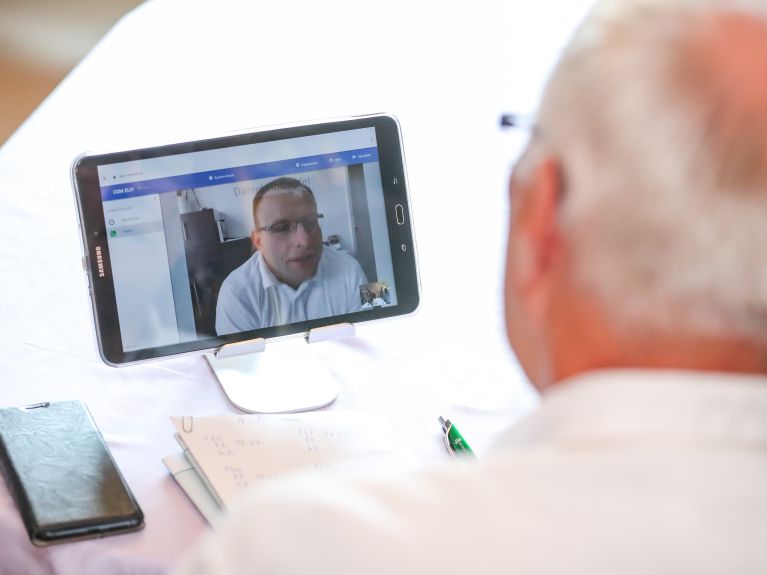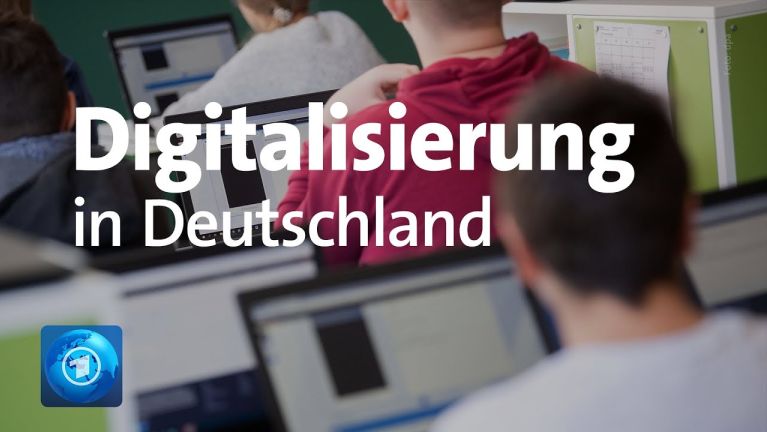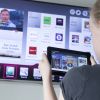Reduce the digital divide
How digital is Germany? The D21 initiative asked more than 16,000 people about their habits and attitudes.

“Our vision is that all people should benefit as much as possible from digitization”, says Lena-Sophie Müller, Managing Director of the Initiative D21. To create a basis for the way there, the network has been compiling the D21-Digital-Index every year since 2013, a situation report on the digital society. The new edition was published in February 2021. More than 16,000 people took part in the study.
Ms. Müller, a general question: How digital is Germany?
On a scale from 0 to 100, this time we determined an index value of 60 points, an average value. It arises from various factors: What is the attitude of people towards digitalization? How digitally competent are they? How diversely do they make use of digital opportunities? Do they even have access to the digital world? We’ve seen a slight increase in the index value for years. Technological requirements, however, are also becoming higher – we’re therefore always adjusting the bar. The bottom line is that German society is keeping up and is even gaining somewhat.

In your study you speak of a “coronavirus surge”. How does that show up in concrete terms?
In private use, many activities have shifted more strongly to digital space: cultural services, communication, shopping – all this now takes place digitally to a large extent. Incidentally, the older target group is also increasingly opening up to this world; one example is the grandparents’ video chat with their grandchildren. This shows that the digital gap has to be bridged and people have to find ways to do this. The virus has also brought about a digital boost in the work world: almost every third respondent uses the opportunity to work in home office – double as many compared with last year.
Dieses YouTube-Video kann in einem neuen Tab abgespielt werden
YouTube öffnenThird party content
We use YouTube to embed content that may collect data about your activity. Please review the details and accept the service to see this content.
Open consent formThe gap in the field of education seems a little more difficult to bridge. Two thirds of the pupils and teachers surveyed see difficulties in home-schooling. What are the problems here and what are the prospects?
Because the schools before the pandemic usually had traditional face-to-face teaching with printed learning materials, the leap into the digital world was much bigger than in the working world, where many companies had already been working with digital tools. In our opinion, to enable digital learning we have to make three adjustments. First, the infrastructure, which means not only devices but also access, maintenance and software. The second factor is the education and advanced training of teachers. And thirdly, more emphasis should be placed on digital content. Here Germany needs to be better positioned; in other areas we’re much further along.
Basically, people are becoming more confident digitally, but there are major challenges.
According to your study, progress has been made, for example, in participation: the “digital divide” is getting smaller. Will this trend continue?
Basically, people are becoming more confident digitally. But that shouldn’t hide the fact that we are facing major challenges, because we’re dealing with tremendous dynamics in digital development – think only of artificial intelligence, for example. The World Economic Forum has just presented its new Global Risk Report. Digital inequality ranks 7th on the list of the greatest risks for the next few years.
Where do these inequalities exist in Germany?
In Germany, 8.5 million people are still offline. They are mainly people over 70 and those with little education. Their chances of participating in digital progress are slim. The coronavirus has once again made clear: the more digitization accelerates, the more needs to be done to minimize the risk of a divide.
Disinformation and fake news represent a further risk. A good third of those surveyed for your study see democracy at risk from digitization. How can the digital society meet this threat?
The US elections have just shown us again how quickly disinformation can spread and what it can do. The topic will also occupy us in the Bundestag election this year. Here you have to educate people and counteract disinformation at an early stage – for example, by promoting organizations that practice fact-checking and through further regulation. In this we shouldn’t look only at the big platforms, but also at the “dark social” area: communication is increasingly shifting to encrypted messenger services. This generates a completely new dynamics.
How can your findings serve as an impetus for political action?
We want to create a reliable, neutral situation report on digitization in Germany, which decision-makers can use as a basis for setting the course for the future. In addition, we would like to make politicians aware of current social developments so that they can come up with solutions. To make sure this succeeds, we engage relevant actors from politics, administration, business and civil society in the planning of the study.

In view of the coronavirus pandemic, you have encouraged greater use of digital possibilities in the health sector. What are you thinking of?
Digital health is still a relatively young topic in everyday life in Germany – the legal foundation for telemedicine was laid only at the beginning of 2020. Since then, doctors can, for example, issue digital prescriptions and create digital patient files. But these applications have hardly been used so far, which of course is also because health is a special area of trust. So we have to relieve fears and give people the opportunity to experience the new possibilities. The virus offers an opportunity here that we should take advantage of.
The Initiative D21 is Germany’s largest non-profit network for the digital society. It engages partners from politics, business, science and civil society. With studies and discussion forums, the association provides an impetus for shaping digital change.



